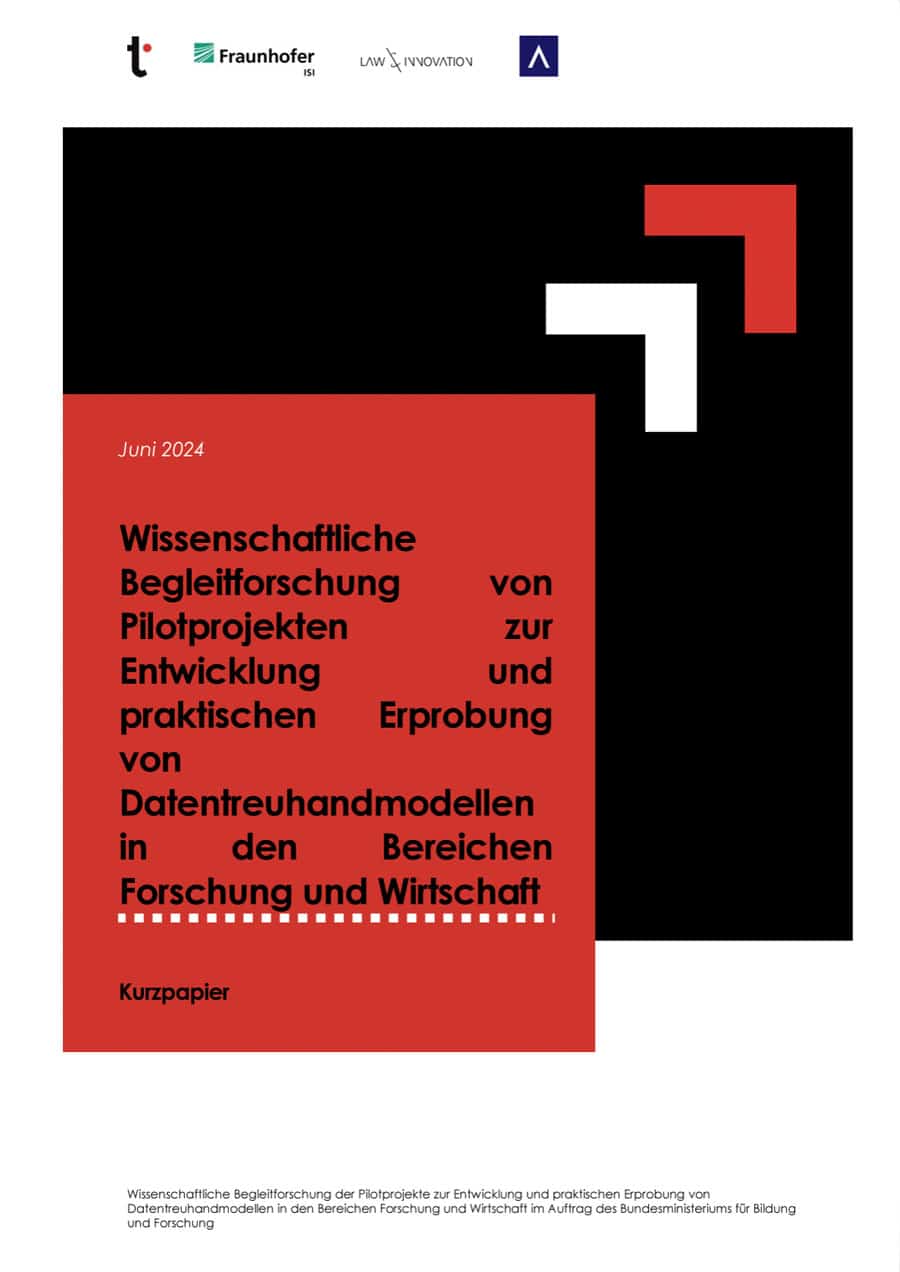Kurzpapier: Wissenschaftliche Begleitforschung von Pilotprojekten zur Entwicklung und praktischen Erprobung von Datentreuhandmodellen in den Bereichen Forschung und Wirtschaft
Publication date: 7 August 2024 | Report language: DE
Das vorliegende Kurzpapier präsentiert Zwischenergebnisse aus der laufenden Begleitforschung zu 20 vom Bundesministerium für Bildung und Forschung geförderten Projekten, welche Datentreuhandmodelle entwickeln und praktisch erproben. Arbeitshypothese der Begleitforschung ist, dass aufgrund von Informationsasymmetrien zwischen potenziellen Datengebenden und Datennutzenden aus Wissenschaft und Wirtschaft Daten bislang aus gesamtgesellschaftlicher Sicht nicht im wünschenswerten Umfang geteilt werden. Die Begleitforschung betrachtet Datentreuhandmodelle als ein mögliches Instrument zur Reduktion von Kosten und Risiken sowie zur Erhöhung des Nutzens von Datenteilen. Um Datentreuhandmodelle erfolgreich zu etablieren, bedarf es der Klärung rechtlicher und technischer Fragen, der Entwicklung von Geschäftsmodellen sowie der Steigerung von Akzeptanz für Datentreuhandmodelle, auch mittels Standards und Zertifizierung. Die Begleitforschung identifiziert Herausforderungen und erste Lösungsansätze bei der Umsetzung von Datentreuhandmodellen und wirft Fragen für die weitere Forschung auf.





